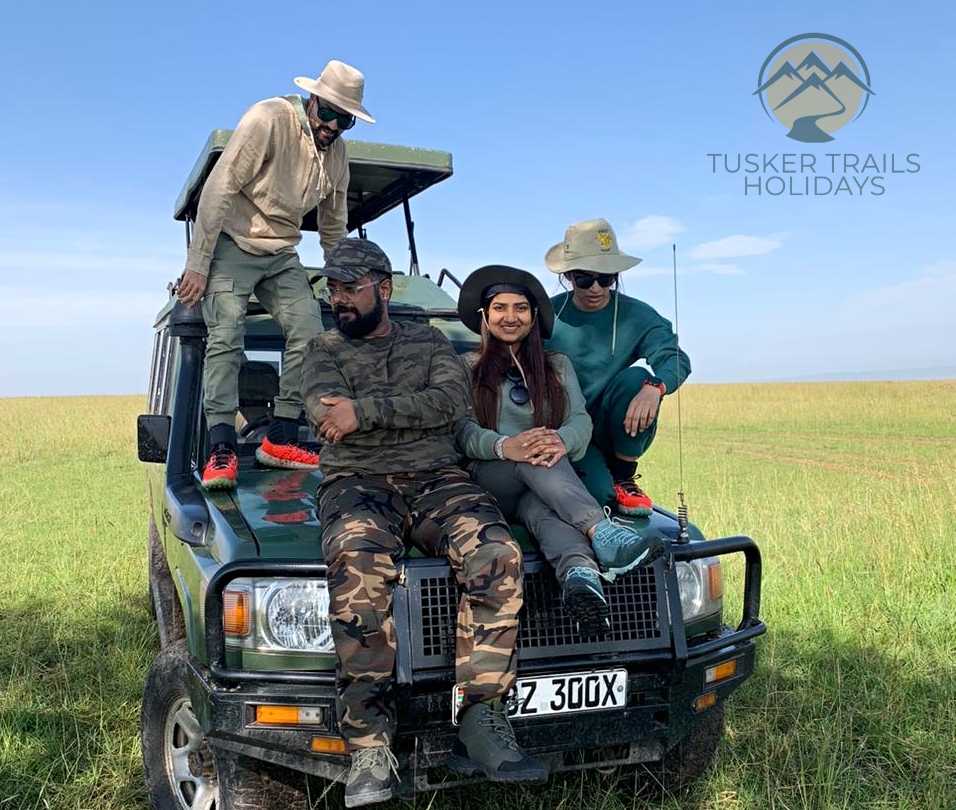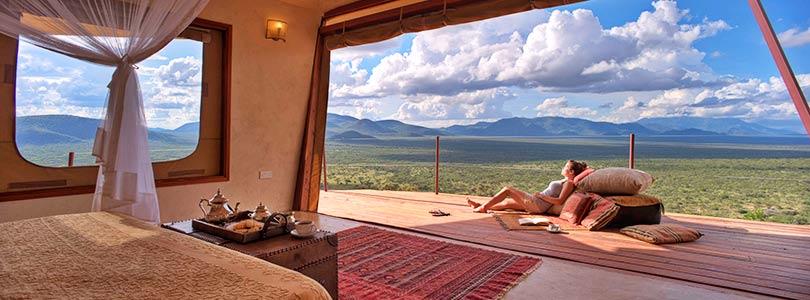Understanding the many options for transportation for Mombasa is vital to having enjoying a pleasant and memorable holiday. Take note of these important transportation arrangements:
1. How to get there Mombasa
Moi International Airport (MBA), the main airport for Mombasa, is located in Moi. It handles domestic and international flights. Mombasa is serviced by numerous major airlines.
By Train: The Madaraka express, run by Kenya Railways provides a comfortable and modern rail service between Nairobi to Mombasa.
Bus Companies like Coast Bus and Modern Coast provide services between Mombasa and other cities of Kenya.
2. Local Transport in Mombasa
Taxis and Ride-Hailing Services are easy to access. Uber and Bolt ride-hailing service are readily available in Mombasa.
Tuk-tuks are three-wheeled vehicles which are well-known and inexpensive for city travel. They are ideal for shorter distances.
Matatus: They are minibuses that share specific routes. This is the most common form of public transport. Although they're a more affordable alternative, they can be crowded and uncomfortable.
Motorcycle taxis, referred to as boda-bodas, are available to offer quick and simple transport for small distances.
3. Car Rentals
Rental services for cars are available at the airport as well as within the city. Local and international car rental companies provide a wide selection of cars. Be aware of local traffic and driving regulations.
Service for Chauffeur: If you aren't keen on driving yourself or hire a chauffeured car, a chauffeured service is also available.
4. Ferry Services
Likoni-Ferry: This ferry connects Mombasa to the southern part of Mombasa on the mainland. It is essential for pedestrians in order to access the beach in the south. The cost for vehicles is.
5. Excursions and day trips
Tour Operators: A lot of tour companies offer organized excursions to popular locations like Mombasa Marine National Park (Fort Jesus), and beaches nearby, such as Diani or Nyali. These excursions typically include transportation.
Public Transport: Travelers who are independent are able to reach various attractions taxis, matatus or taxis.
6. Walking and cycling
Rent a bicycle for an enjoyable ride.
Walking is feasible in certain places in Mombasa. This includes the Old Town and the areas near the beach.
7. Tips for travelers
Safety: Avoid using public transportation at late at night. Only use taxis and reputable taxi services. Always be cautious with your possessions.
Negotiation: In the event of taxis or Tuk-Tuks it is recommended to negotiate the price prior to your trip. Meters aren't used often.
Traffic: Expect heavy traffic, especially around Likoni Ferry or central business district.
If you are aware of these options for transportation and making the proper arrangements, you'll be able to ensure a hassle-free and enjoyable holiday in Mombasa. Take a look at the recommended kenya holiday packages for website info including tour firms in kenya, kenya safaris, african safari excursions, african safari africa, kenya beach and safari holiday, tour agents in kenya, mombasa safaris kenya, mombasa travel agency, kenya africa travel, kenya travel and more.

What Cultural Sensitivity Considerations Do I Need To Know When Holidaying In Mombasa, Kenya?
When holidaying in Mombasa, Kenya, being culturally sensitive is essential to ensure that you have respectful interactions with local people and to enrich your travel experience. Here are some important considerations to take into consideration:
1. Be respectful of local dress codes.
Modest Dress: Mombasa has a significant Muslim community. In public areas, religious locations, and neighborhood, it is important to dress modestly. This includes wearing knee pads and shoulders.
Beachwear. While it's acceptable to wear a swimsuit on the beach however, it is recommended to protect your skin while you leave the beach area and go to nearby eateries or shops.
2. Religious Sensitivity
Going to Mosques. To visit a place where you can worship, you need to first seek permission. It is also recommended to dress modestly. Women must cover their heads and all visitors should take off their shoes before entering.
Prayer Times: Be aware of the five prayer times of the day and be considerate during these times, especially if you are near an Islamic mosque.
3. Photography Etiquette
Ask for permission to take photographs, particularly in rural settings or traditional settings. Some people might be uneasy and might think it's intrusive.
Do not take pictures at sensitive locations like military bases, government buildings and cultural sites that may make photography illegal.
4. Social Interactions
It is essential to greet people courteously. In Swahili the most common greeting is "Jambo". It is commonplace to shake hands, but it's more respectful for Muslim women to wait until their hands are extended or to greet in a more formal manner.
Personal Space: Be aware of the need to respect the privacy of your own space.
5. Taboos, Cultural Norms
Limit Public Displays Affection. They are generally frowned at.
Left Hand Use According to tradition, the left hand is not considered clean. Use your right hand for eating, greeting and exchange of goods or money.
Feet: displaying your feet or pointing anyone by your feet is considered disrespectful.
6. Language and Communication
Basic Swahili A few phrases from Swahili can go a long way in showing respect and building rapport with the locals. Some of the most commonly used words are: "Asante" or "Habari" which both mean "Thank you". ).
Politeness is crucial. Keep your manner polite and respectful when communicating. Kenyans are polite and respectful in their interactions.
7. Be respectful of local Customs
Respect the traditional customs and customs. If you have been invited to attend a local event, pay attention and respect your hosts.
Bargaining: Bargaining is a common practice in local and market shops, but it should be done respectfully and with a sense of humor. It's a common practice, rather than an aggressive one.
8. Alcohol and Smoking
There is alcohol available to drink however it should be done discreetly. Avoid drinking in public.
Smoking Smoking is generally not allowed in public places. You will find designated smoking areas.
9. Environmental Respect
Littering: Be mindful to dispose of trash in a responsible manner and refrain from littering. Take care to respect wildlife and natural areas.
Conservation: Contribute to conservation efforts and respect local wildlife and habitats. Beware of buying products that are made from endangered species.
10. Assisting Local Communities
Local Businesses: Help support the local market, the local artisans, and local businesses to boost the local economy.
Responsible Tourism: Participate in responsible tourism by selecting eco-friendly and community-based tourism choices that benefit local population.
These cultural sensitivity guidelines will allow you to enjoy a an authentic and respectful journey in Mombasa. They also enhance your appreciation and understanding of the culture of the country. Take a look at the best Diani Beach taxi for site advice including kenya tours and safaris, mombasa travel agency, tour and travel company, kenya tours and travel, tour and travel company, tours safari africa, african safari excursions, kenya tours, african safari excursions, travel & tours company and more.

What Environmental Obligations Do I Need To Be Aware Of During My Vacation In Mombasa Kenya?
To preserve the natural beauty, and the biodiversity of Mombasa, Kenya it is crucial that you're environmentally responsible. Here are some important environmental obligations to be aware of:
1. Sustainable Accommodation
Eco-friendly Hostels: Pick hotels that are committed to implementing sustainable practices. Search for eco-labels or certifications like Eco-Tourism Kenya.
Participate to hotel initiatives for conservation of energy and water. Reuse linens and towels. Turn off lights and air conditioning when not being used.
2. Responsible Wildlife Viewing
Keep away from wildlife: from them in order to prevent disturbing. Be sure to follow the instructions of your tour guide.
Avoid Feeding Wildlife: Feeding animals can disturb their diets.
Leave No Trace: Do not litter around wildlife parks or reserves. Bring all of your garbage along with you, and then dispose of it in a proper manner.
3. Plastic Reduction
Do not use plastics for one-time use. Keep a reusable cup bag, bag, or other the utensil.
Participate in Local Initiatives - Take part or help local beach cleaning efforts and organizations that are trying to reduce the amount of plastic waste.
4. Water Conservation
Make use of water wisely: Mombasa experiences water scarcity issues. Switch off the water taps and take a shorter shower.
Eco-friendly Products: Choose products that are biodegradable, eco-friendly and can help minimize the impact on water quality.
5. Energy Conservation
Reduce energy consumption by limiting the usage of air conditioning. Unplug any devices when they are not in usage.
Support Renewable Energy Select accommodation and tour operators that use renewable energy.
6. Sustainable Transportation
Public Transport: Lower your carbon footprint whenever you use public transportation such as matatus, buses and other forms of public transportation.
You can consider using bicycles for short distances. There are some areas that offer eco-friendly tuktuks.
7. Aiding Local Economic Development
Support local businesses: Contribute to local businesses by buying food items, souvenirs, and crafts from local merchants.
Fair Trade - Choose fair trade items to be sure local producers receive fair prices.
8. Environmental Education
Learn and Share Learn and Share - Get educated about the local environment, and conservation efforts. To increase awareness of what you've learned, share your knowledge to others.
Respect local culture: Learn and follow the customs and practices of your community with respect to environmental conservation.
9. Marine Conservation
If you're diving or snorkeling, be sure to avoid touching coral reefs. Make sure you use sunscreen safe for reefs to ensure the safety of marine life.
Do not dump trash in the sea. Be a part of or help with programs for marine conservation.
10. Ethical Souvenirs
Avoid wildlife products Don't buy items made of endangered species like ivory or tortoiseshell.
Sustainable Materials Buy souvenirs made of recycled or sustainable materials.
11. Join in the Conservation Activities
Volunteering: Take part in local conservation initiatives or community-based tourism projects.
Give or help local conservation groups and NGOs working to protect the environment.
12. A responsible traveler is a great idea
Group Size: Traveling in small groups can reduce the impact on the environment.
Eco-Tours. Choose tour operators committed to sustainable practices, and follow environmentally friendly practices.
Remember that these obligations will assist you protect Mombasa's valuable natural resources, as well as preserve the beauty and variety of the region for the future generation. Take a look at the most popular airport transfers kenya for website info including facts about kenya, kenya tours and safaris, kenya safari and beach packages, africa tours and safaris, kenya holiday packages, safari trips in africa, tours and safaris, kenya safari holiday, tour company, safar kenya and more.
